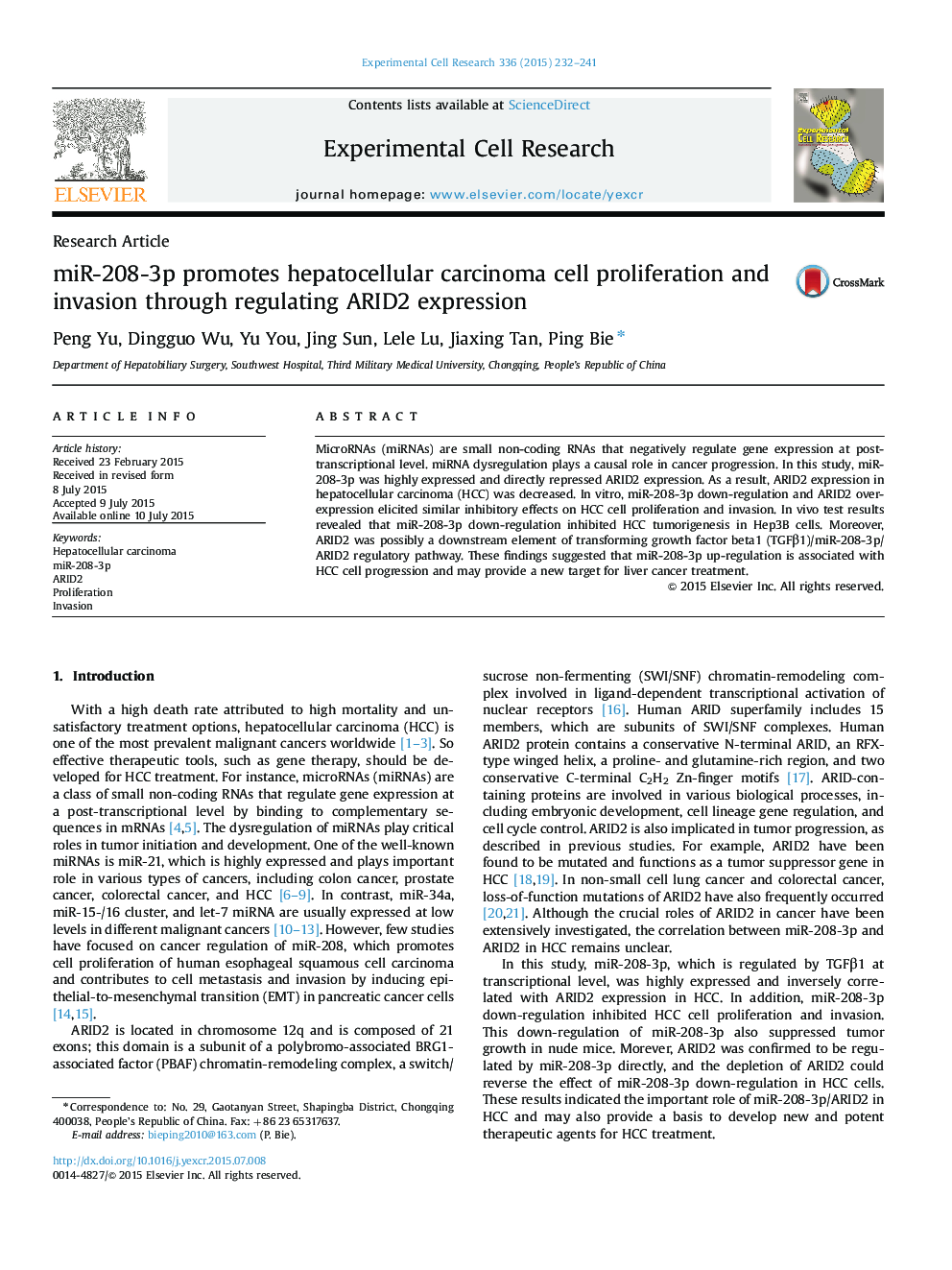| Article ID | Journal | Published Year | Pages | File Type |
|---|---|---|---|---|
| 2130169 | Experimental Cell Research | 2015 | 10 Pages |
•miR-208-3p was highly expressed and directly repressed the expression of ARID2 in HCC.•miR-208-3p contributed to HCC cell progression both in vitro and in vivo.•Over-expression of ARID2 inhibited the HCC cell proliferation and invasion.•Restoration of ARID2 partly reversed the the effect of miR-208-3p down-regulation on HCC cells.•Newly regulatory pathway: miR-208-3p mediated the repression of ARID2 by TGFβ1 in HCC cells.
MicroRNAs (miRNAs) are small non-coding RNAs that negatively regulate gene expression at post-transcriptional level. miRNA dysregulation plays a causal role in cancer progression. In this study, miR-208-3p was highly expressed and directly repressed ARID2 expression. As a result, ARID2 expression in hepatocellular carcinoma (HCC) was decreased. In vitro, miR-208-3p down-regulation and ARID2 over-expression elicited similar inhibitory effects on HCC cell proliferation and invasion. In vivo test results revealed that miR-208-3p down-regulation inhibited HCC tumorigenesis in Hep3B cells. Moreover, ARID2 was possibly a downstream element of transforming growth factor beta1 (TGFβ1)/miR-208-3p/ARID2 regulatory pathway. These findings suggested that miR-208-3p up-regulation is associated with HCC cell progression and may provide a new target for liver cancer treatment.
